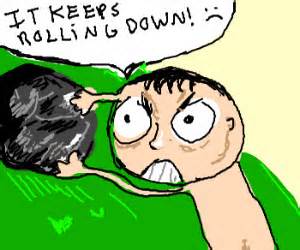The promise of a free market is that you can get ahead with hard work and sound investment.
In other words, you need your hard-earned money (or “working capital”) to make more money. But if you’re not earning enough to have money left over in savings at the end of the week, chances are no family member is willing to give it to you and no bank is willing to lend it to you. Access to capital—or rather the lack of access—is changing the promise that you can get ahead if you work hard.
Productivity isn’t just about, or even primarily about making money, but money is part of it. Money makes a better life possible. Beyond the essentials, it buys time off for enrichment to read a book, connect with your neighbors or just smell the clover. It gives you time to think about the quality of your work, and not just recover from it.
 That’s why it’s a problem when those who want to work can’t earn enough to live on. Everyone in a community should be able to earn a living wage if they have the discipline, skill and desire, and everyone in the community has a stake in creating that opportunity. Escape from social dependence rests on the willingness to work and develop new skills. Work allows “the pursuit of happiness.” A community that fails to support that kind of self-reliance and personal fulfillment is at risk of unraveling.
That’s why it’s a problem when those who want to work can’t earn enough to live on. Everyone in a community should be able to earn a living wage if they have the discipline, skill and desire, and everyone in the community has a stake in creating that opportunity. Escape from social dependence rests on the willingness to work and develop new skills. Work allows “the pursuit of happiness.” A community that fails to support that kind of self-reliance and personal fulfillment is at risk of unraveling.
Productivity is also about seizing the opportunity to build new wealth with talent and elbow grease. It’s the Korean market in a poor Philadelphia neighborhood where the whole family works 8-12 hours a day, saving every penny, while the kids do school work between customers so they can get into Penn. The dream is that hard work, savings, and self-improvement will get you to a better life tomorrow. Our communities also used to support that dream.
Unfortunately, as you know, the news is full of statistics about threats to upward mobility in developed countries today (most recently in the World Economic Forum’s Global Risks Report, published for this week’s conference in Davos, Switzerland). For the middle class, it’s become harder to live on what you earn. With reduced savings at the end of the day, increasingly it is only the wealthiest wage earners who have enough money to invest in an even better future.
Aside from the spigot of student loans, it’s been difficult if not impossible for most Americans to gain access to capital by borrowing money. You need capital to grow your business, and the kinds of companies I work with can’t get it from the banks, even when they’re doing well. In other words, unless the business owner has her own source of funds, she cannot finance her company’s future growth.
It’s the same for innovation. While there are more ways to crowdfund your brilliant idea, unless your family and thousand new friends can be your bank, bringing a new product or service to market is a longer shot than ever. Banks no longer come even close to satisfying the need that business owners have for capital.
Not so long ago it was different.
In his article “Less Innovation, More Inequality,” Nobel laureate (in economics) Edmund Phelps notes that American inventiveness and therefore general prosperity has been in decline for more than 50 years. Even with the disruptions of war and depression, from the1820’s to the 1960’s in America there was:
a frenzy of creative activity, economic competition and rapid growth in national income provided widening economic inclusion, rising wages for all and engaging careers for most.
Today, the consequences of the fall-off from a flourishing economy are becoming apparent. New wealth is increasingly produced by and new innovation is increasingly funded by those who are rich already.
The fear is that this accumulation of wealth is creating the kind of permanent nobility last seen in 17th and 18th century Europe. Today, rich people increasingly go to the best schools with, marry, do business with, and eventually inherit much of society’s wealth from one another. (I’ve talked elsewhere about Charles Murray’s take on this relatively new cultural divide.)
In terms of your work today, these are some of the questions that are worth considering:
What happens to how you view your work when an economic system that rewarded talent, discipline and sacrifice evolves into an aristocracy?
What happens when only a fortunate few have access to the capital that makes future dreams come true?
An article in the Wall Street Journal last week noted:
For some, this would be a dystopian vision, skewing incentives across the economy, and making inherited wealth even more important to signaling social status. It runs contrary to the idea of a meritocracy and equality of opportunity that many in the U.S., on both sides of the political spectrum, see as forming the bedrock of a just society.
It’s certainly a nightmare vision for those of us who believe in the ennobling qualities of work.
Clearly, it’s time to shake things up.
